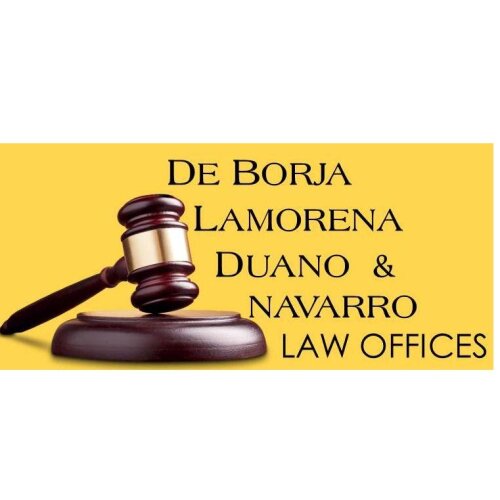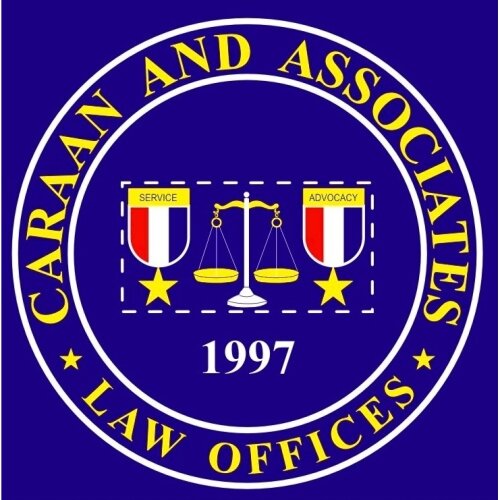Best Financial Services Regulation Lawyers in Manila
Share your needs with us, get contacted by law firms.
Free. Takes 2 min.
List of the best lawyers in Manila, Philippines
About Financial Services Regulation Law in Manila, Philippines
Financial Services Regulation in Manila, Philippines, encompasses the laws and rules governing the financial sector, including banks, investment firms, insurance companies, and other financial institutions. Its primary purpose is to ensure the stability of the financial system, protect clients, ensure fair and transparent market practices, and combat fraud and other financial crimes. The Bangko Sentral ng Pilipinas (BSP), Securities and Exchange Commission (SEC), and the Insurance Commission are the key regulatory bodies overseeing the implementation and enforcement of these laws.
Why You May Need a Lawyer
Legal advice in Financial Services Regulation may be necessary in various situations, including:
- Compliance issues with BSP, SEC, or other regulatory bodies.
- Legal disputes involving financial transactions or agreements.
- Interpretation and application of new or existing financial regulations.
- Assisting with the licensing process for financial institutions or services.
- Responding to investigations or enforcement actions by regulatory bodies.
- Legal structuring of financial products or services to comply with local laws.
- Protection and defense against allegations of financial misconduct or fraud.
Local Laws Overview
Some key aspects of local laws in Manila that are relevant to Financial Services Regulation include:
- The General Banking Law of 2000, which outlines the licensing, organization, and regulation of banks and quasi-banks.
- The Securities Regulation Code, which governs the registration, regulation, and trading of securities.
- The Corporation Code, which provides the framework for the formation and regulation of corporate entities, including financial institutions.
- The Anti-Money Laundering Act, aimed at preventing and combating money laundering and terrorism financing.
- Regulations issued by the BSP on financial products, services, and consumer protection.
Frequently Asked Questions
1. What is the Bangko Sentral ng Pilipinas (BSP)?
The BSP is the central bank of the Philippines, responsible for maintaining monetary stability, promoting financial system stability, and ensuring an efficient payments and settlements system. It also supervises financial institutions to ascertain adherence to laws and regulations.
2. What role does the Securities and Exchange Commission (SEC) play?
The SEC monitors and regulates the securities market in the Philippines. It ensures that entities offering securities to the public comply with relevant legal requirements to protect investors and maintain market integrity.
3. Are foreign investors allowed to operate financial services in the Philippines?
Yes, foreign investors can operate in the financial services sector, subject to specific guidelines and restrictions detailed in the Foreign Investments Act and other relevant regulations.
4. How can a financial institution obtain a license in Manila?
To operate legally, financial institutions must obtain the necessary licenses from regulatory bodies like the BSP or SEC, depending on their specific activities. The process involves submitting applications and complying with certain requirements set by these entities.
5. What are the consequences of non-compliance with financial regulations?
Non-compliance can lead to severe penalties, including fines, suspension or revocation of licenses, and legal action. Companies might also face reputational damage that can affect their business operations.
6. What is anti-money laundering compliance?
Financial institutions must implement and adhere to policies designed to prevent money laundering. This includes conducting due diligence on clients, monitoring transactions, and reporting suspicious activities to relevant authorities.
7. How does the BSP protect financial consumers?
The BSP has issued various regulations focusing on fair treatment, transparency, and proper resolution of consumer complaints in the financial sector, ensuring consumer rights are protected.
8. What is a financial intermediary?
A financial intermediary is an institution like a bank or investment firm that acts as a middleman between savers and borrowers, facilitating the flow of funds in the economy.
9. Can financial disputes be resolved outside of court?
Yes, many financial disputes can be resolved through alternative dispute resolution mechanisms, such as mediation or arbitration, which are faster and often less costly than court proceedings.
10. What training might a lawyer in this field have?
Lawyers practicing in financial services regulation typically have specialized training in finance and economics, along with a thorough understanding of local and international financial laws and standards.
Additional Resources
If you need further information or assistance, the following resources may be helpful:
- The Bangko Sentral ng Pilipinas (BSP)
- Securities and Exchange Commission (SEC)
- Insurance Commission (IC)
- Philippine Deposit Insurance Corporation (PDIC)
- Anti-Money Laundering Council (AMLC)
Next Steps
If you find yourself in need of legal assistance in the field of Financial Services Regulation in Manila, Philippines, consider the following steps:
- Identify the specific issue or query you have related to financial regulations.
- Research and contact legal professionals or firms that specialize in financial services and regulation.
- Prepare all relevant documents and details to share with your legal advisor for a comprehensive review.
- Consider scheduling an initial consultation to discuss your needs and understand potential legal pathways.
- Evaluate the legal advice received and determine the best course of action for your situation.
Lawzana helps you find the best lawyers and law firms in Manila through a curated and pre-screened list of qualified legal professionals. Our platform offers rankings and detailed profiles of attorneys and law firms, allowing you to compare based on practice areas, including Financial Services Regulation, experience, and client feedback.
Each profile includes a description of the firm's areas of practice, client reviews, team members and partners, year of establishment, spoken languages, office locations, contact information, social media presence, and any published articles or resources. Most firms on our platform speak English and are experienced in both local and international legal matters.
Get a quote from top-rated law firms in Manila, Philippines — quickly, securely, and without unnecessary hassle.
Disclaimer:
The information provided on this page is for general informational purposes only and does not constitute legal advice. While we strive to ensure the accuracy and relevance of the content, legal information may change over time, and interpretations of the law can vary. You should always consult with a qualified legal professional for advice specific to your situation.
We disclaim all liability for actions taken or not taken based on the content of this page. If you believe any information is incorrect or outdated, please contact us, and we will review and update it where appropriate.

















